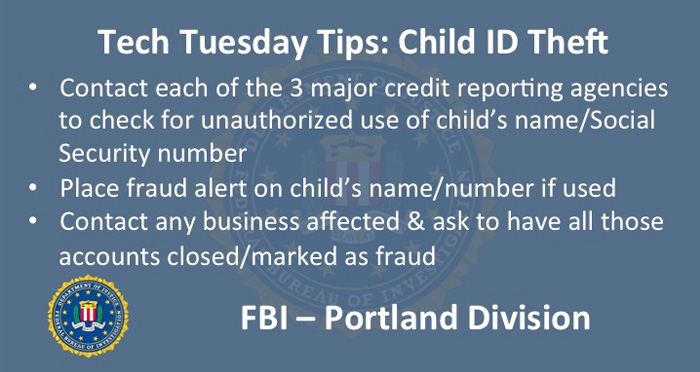Anyone with kids will tell you that parenting is no easy task, but the dark side of technology is making an already-challenging job even harder.
This week we are talking about criminals who focus their attention on the smallest members of your family. They do it for two simple reasons: kids come with clean credit histories and their parents don’t often notice there’s a problem until years down the road.
Trafficking in children’s Social Security numbers can be very profitable on the dark web — the younger the child, the better. Why? Because an unused Social Security number can be paired with any name and date of birth, and that is a valuable tool for any kind of criminal.
What happens after your child’s info is stolen and sold? The fraudsters can take out mortgages or car loans in your kid’s name. They can also rack up huge credit card debt, obtain fraudulent immigration documents and more. They may share the info with other thieves, connecting multiple names to your child’s number. Cleaning up this mess can be difficult and time-consuming, and your child may suffer long-term consequences as a result. When the time comes, he or she may not be able to qualify for student loans, get a credit card or be able to rent a place to live.
The original theft can happen in any number of ways — data breach of a health care facility or business; improper disposal or leakage of information from a school; or over-sharing of information online. The result is the same.
Here are some warning signs to watch for:
* You get a notice from the IRS saying your child didn’t pay the appropriate taxes
* Your child starts receiving credit card offers
* Your child receives a jury summons
* Collection agencies or companies attempt to contact your child about an unpaid bill
Our friends at the Federal Trade Commission have some advice on what you can do if this happens to your family:
* Contact each of the three major credit reporting agencies. You will likely need the child’s birth certificate, proof of his or her Social Security number and government-issued ID proving who you are.
* Ask for the agencies to search for your child and your child’s Social Security number to determine if there are any associated credit reports. If so, ask that all fraudulent accounts and collection notices be removed from that report.
* Place a fraud alert on your child’s information with the credit reporting agencies and file a fraud alert with the FTC.
* Contact any business that is listed in the credit report and ask them to close the account and have it marked as fraudulent.
* Make sure to document every call you make and letter you send.
If you have been victimized by an online scam, be sure to report it to the FBI’s Internet Crime Complaint Center at www.ic3.gov or call your local FBI office.





